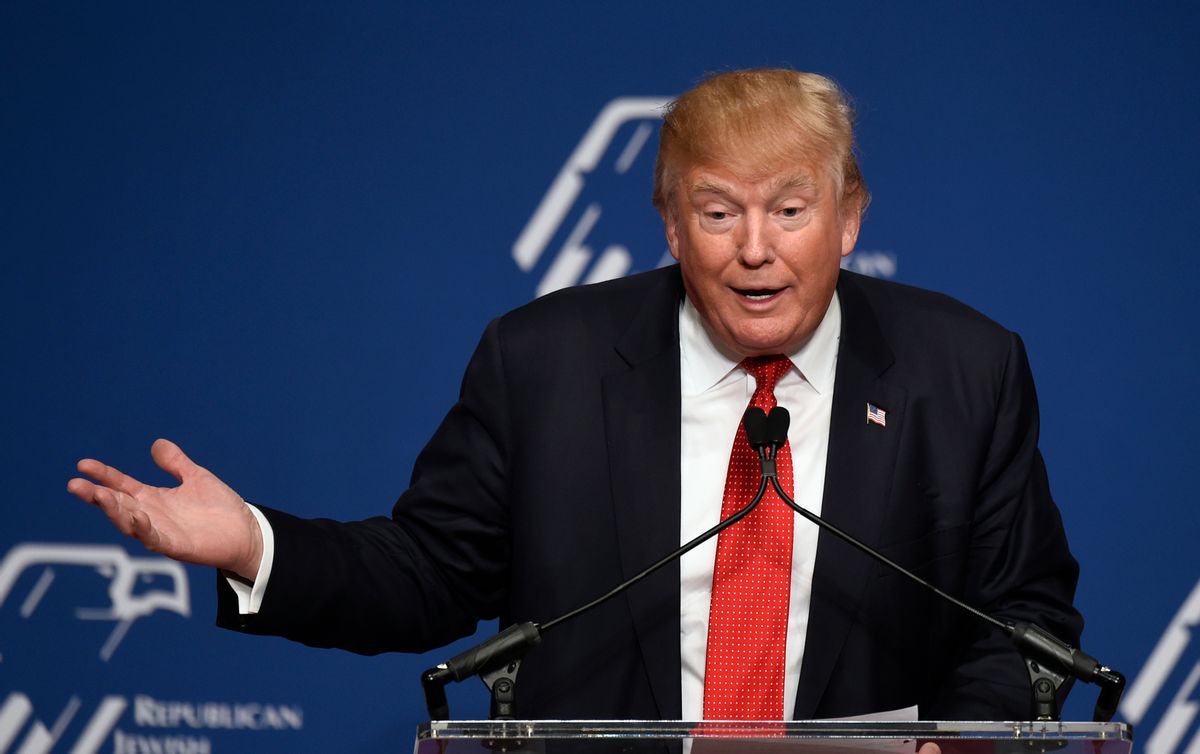The executive director of the Jewish Democratic Council of America told Salon on Sunday that President Donald Trump's recent comments about Jewish voters continue "what has been a very negative stereotype of Jews and money and power."
"He has said in the past that he wants Jews to be the ones counting his money," Halie Soifer told Salon. "He has repeatedly made references to what has been a very negative stereotype of Jews and money and power." After saying that "I think that he must believe it, and that is why he continues to repeat it," Soifer noted that Trump was repeating claims that he has made when "typically speaking extemporaneously, and clearly he's speaking from his heart. It's clear that there's quite a bit of hatred in it." Soifer also criticized Trump for having "views of Jews as driven largely by money, which is why he said at this events that Jews have no choice but to support him, referring to tax cuts."
She added that Trump said "those who don't support Israel, they should — and this is not a direct quote — but essentially, they should leave. And then we saw hateful figures like Ann Coulter retweet that video and suggest that Jews are unpatriotic, that they don't love America either. That is a good example of how the president's hatred is amplified by others in the media to continue to spread these anti-Semitic tropes. And this is exactly why anti-Semitism and white nationalism have grown during his presidency."
During the speech on Saturday to the Israeli American Council, Trump said that "we have to get the people of our country, of this country, to love Israel more, I have to tell you that. We have to do it. We have to get them to love Israel more. Because you have people that are Jewish people, that are great people — they don't love Israel enough. You know that. You know that." His remarks were later retweeted by Ann Coulter who asked, "Could we start slowly by getting them to like America?"
Trump is also reported to have said, according to the Times of Israel, that Jews would need to support him to stop a wealth tax. "Even if you don’t like me — and some of you don’t; some of you, I don’t like at all, actually — and you’re going to be my biggest supporters because you’ll be out of business in about 15 minutes," Trump remarked.
Trump's remarks were similar to past comments that he has made about Jewish voters. In August Trump said that he believed "any Jewish people that vote for a Democrat, I think it shows either a total lack of knowledge or great disloyalty." In 2015 Trump made controversial remarks to the Republican Jewish Coalition, saying that "stupidly, you want to give money. …You’re not going to support me because I don’t want your money." He later added, "Is there anyone in this room who doesn’t negotiate deals? Probably more than any room I’ve ever spoken.”
Soifer's comment about Trump saying he wanted Jews to be the ones counting his money is based on a 1991 book by John O’Donnell, the former president of Trump Plaza Hotel and Casino in Atlantic City, who quoted Trump as saying "Black guys counting my money! I hate it. The only kind of people I want counting my money are short guys that wear yarmulkes every day. … I think that the guy is lazy. And it’s probably not his fault, because laziness is a trait in blacks. It really is, I believe that. It’s not anything they can control." The president initially denied his remarks but later told Playboy in 1997 that "the stuff O’Donnell wrote about me is probably true.”

Shares